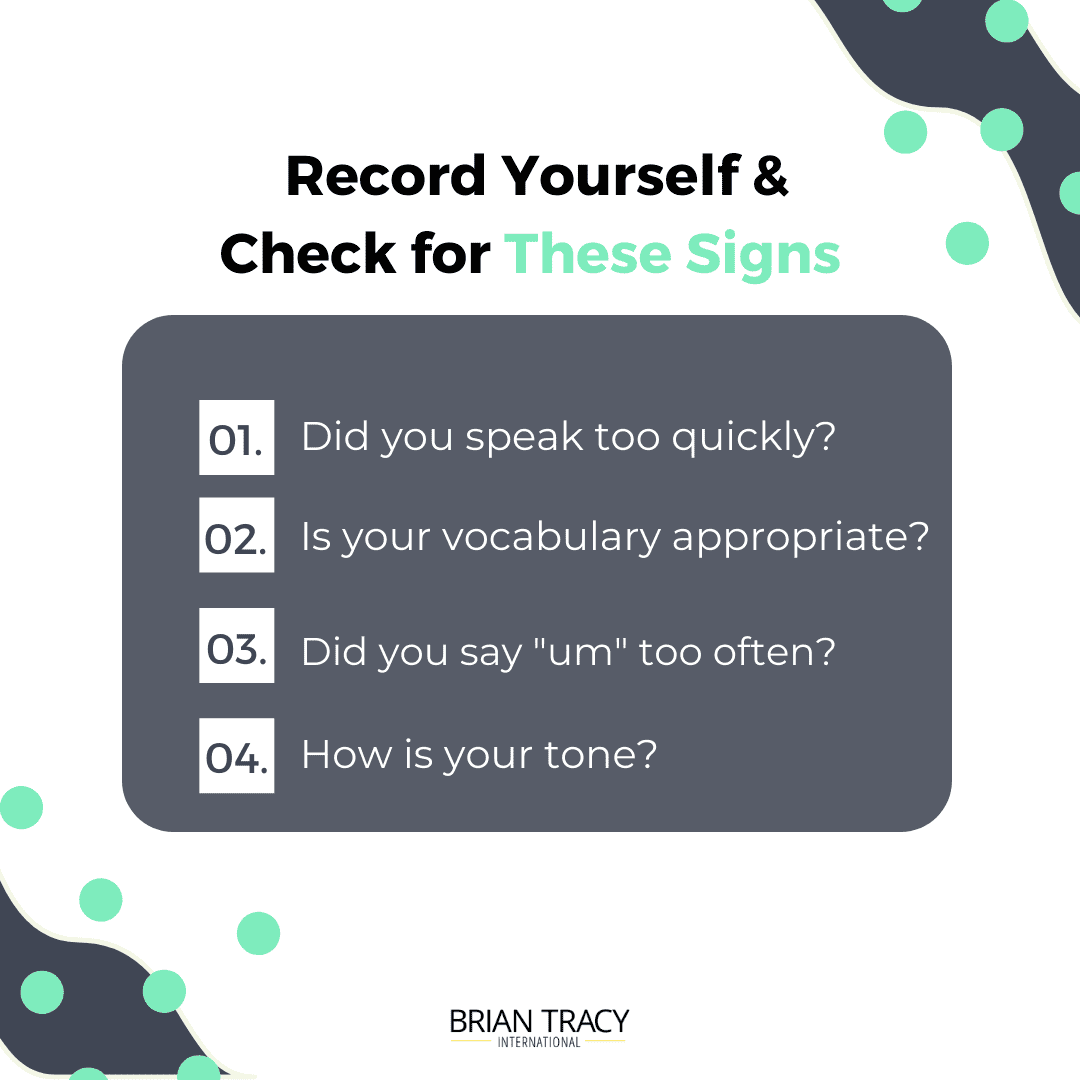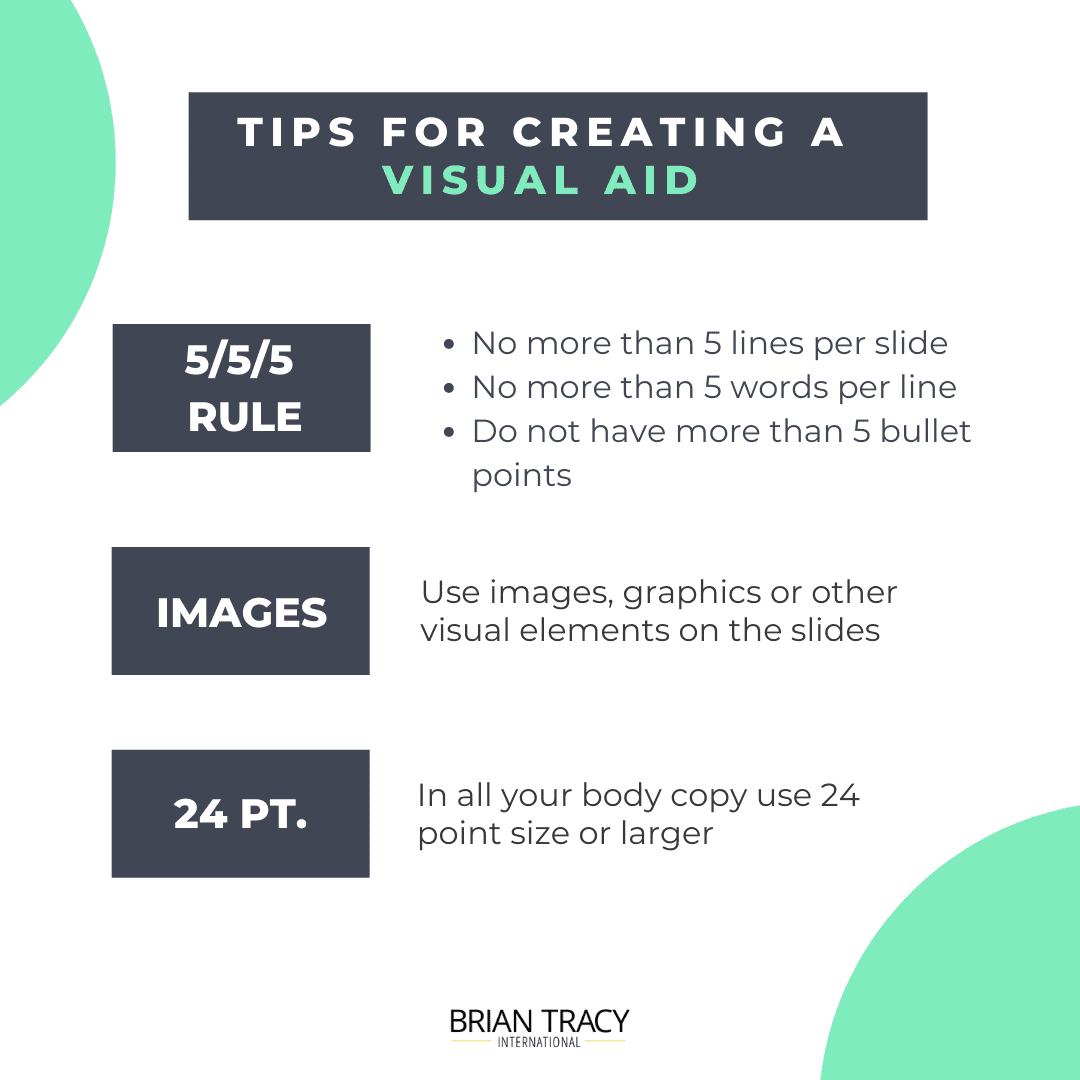How Overcome Your Fear of Public Speaking
How Overcome Your Fear of Public Speaking
If the idea of getting up in front of a group of people — a big or small audience, online or in-person — makes you sweat, you might suffer from the fear of public speaking.
Public speaking is a fantastic skill I believe most people should master, though. Whether you want to make a career out of it or just want to be able to feel comfortable speaking publicly on a personal level.
Regardless of the fears you may have right now, it is possible for you to become a successful motivational public speaker.
So how do you kick the public speaking anxiety? Learn some public speaking facts and try these tips to learn how to overcome your fear of public speaking and become a public speaking master.
Why Are People Afraid of Public Speaking?
It may help you to know that you are not alone in your fear of public speaking. In many, it can cause a fight or flight response. In fact, forty percent of Americans suffer from glossophobia.
What is glossophobia really? It is an anxiety disorder and a common fear – and it goes beyond just being nervous or worrying about being in front of an audience.
Some of the physical symptoms you might feel include your heart racing and you may find it harder to breathe (hint it is always helpful to take a couple of deep breaths). You could feel sweaty, dizzy, or nauseous.
You might be shaking uncontrollably or even want to run out of the room. This can be from starting your speech, or even before when making direct eye contact with members of the audience.
Many people learn how to overcome their public speaking fears by learning relaxation techniques and also by taking public speaking classes.
Another method that has proven to work is to practice exposure therapy (more on that), however, it is very effective for people who may be suffering from various types of anxiety disorders such as social phobia.
Understanding the power of positive thinking can also help you overcome your fear of public speaking.
Whether you have glossophobia or are just nervous about your speech, the right tools will give you the confidence you need to achieve your public speaking goals.
Here Are My Tips to Help You Overcome The Fear of Public Speaking
As someone who’s made a career out of speaking publicly, I’ve personally tested and tried each of these tips to help me grow as a speaker. This advice has also helped many people learn how to overcome their fear of public speaking. Here are the key points that I’ve learned and want to share with you.
1. Choose a Topic You’re Passionate About
When you care about something, it becomes easier to speak about it and get others invested and passionate about what you’re talking about as well.
So if you’re going to speak on a topic, make sure it’s something you’re passionate about.
Overcome nervous public speaking feelings by choosing a topic that:
- Has had an inordinate impact on you
- You want to share with others
- You intensely feel others could benefit from knowing
- You can speak about it from the heart
Other people can benefit from the knowledge you have gained through your unique experiences. Combine your passions with your desire to improve others’ lives to calm your nerves and boost your confidence in front of an audience.
2. Get Organized
A big part of what causes fear of public speaking is not being prepared.
One of the best things you can do to help you feel more prepared and confident in your speech is to stay organized.
Get your notes together and outline the main points of your speech. Plan how you are going to start your speech to grab the attention of your audience within the first 30 seconds.
Consider color-coding certain parts of your speech so they are easy to refer to.
If you plan to use visual aids, get them together and practice using them. Know where you will place them during your speech.
Make sure your technology is in working order as well. Be familiar with your laptop, tablet, or phone and how to cast your screen or run a projector if that is what you will be using.
Ask questions about the presentation area so you know what to expect. Will there be a podium? Will you have a microphone? Will you wait backstage before your speech or with the audience?
3. Practice Practice Practice
Nothing takes the place of practicing and preparing for your speech. Write out a script of your key points, but don’t read from the script word for word.
One of my best fear of tips to combat a fear of public speaking is to prepare for your speech so well that you could answer any possible question thrown at you.
When someone asks me how he can build effective communication skills and improve his public speaking, I quote the words of Elbert Hubbard, who said, “The only way to learn to speak is to speak and speak, and speak and speak, and speak and speak and speak.”
4. Perform Your Speech in Front of a Mirror
Practice your speech in front of the mirror as if you were speaking directly to someone. If you really want to learn how to overcome stage fright, then pay attention to:
- Your facial expressions
- Your gestures
- Your body movements
- How welcoming you appear
When you have gentle expressions and a calm demeanor when you speak, you will be more welcoming to your audience.
5. Record Yourself and Learn
 Think about how top athletes go back and watch tapes of their gameplay to see how to improve. To overcome your fear of public speaking, you would be essentially doing the same thing by recording your speech.
Think about how top athletes go back and watch tapes of their gameplay to see how to improve. To overcome your fear of public speaking, you would be essentially doing the same thing by recording your speech.
Set up your phone or a video camera to record your speech. Record yourself giving the talk from beginning to end. If you stumble over your words, forget something, or mess up, just keep recording.
Then listen to it or watch it, and make notes on how you could make it better. Some people do not like listening to the sound of their voice on tape, so it is important that you get used to your own voice and speaking style.
6. Work on Your Breath
Sometimes when speaking, we also tend to ramble. Working on your breathing will help you learn how to pace yourself in your speech so you don’t ramble or speed through at a pace your audience can’t keep up with.
When you focus on your breathing your voice will have more resonance and you will relax.
Breathe calmly and focus on getting into a rhythm. Although this is an exercise to overcome public speaking anxiety, breathwork will help reduce stress and improve clarity in all areas of life.
7. Have Someone Review Your Presentation
Sometimes we get in our own heads about our presentations, and it can be helpful to have someone we are close with who can still remain objective review the speech to provide feedback before presenting in front of the audience.
If you can, have someone else you trust to listen to your speech for personalized public speaking help. Choose someone that would be considered close to the audience you’re planning to present to in order to get the best feedback.
This tip follows the principle of exposure therapy, which have you confront your fear of speaking in front of someone by speaking in front of someone.
Starting small with an audience of one who can give you positive feedback will help you visualize just speaking to that one person when it is time to give your speech — from your introductory statement to the end of your speech if needed.
8. Take a Public Speaking Class
One of the best ways to improve public speaking and your comfort with it — and leave the fear of public speaking in your past — is to take public speaking courses.
There are many options out there — whether you take them at the university level or online in your spare time.
Invest in yourself as a public speaker as you would by going to school to earn a degree or certification for a better-paying job. While many speakers start out by giving speeches for free, the typical compensation for a public speaking event is $4,500 to $7,500.
The right training tools can help you become a six-figure speaker too.
9. Exercise Before You Speak
One of my tips for public speaking anxiety that you may not think of is to exercise before you speak.
Exercise is a key factor to success. It sparks creativity, gets the blood flowing, and helps get pent-up energy out.
Exercising before you speak could help tame the nerves and make you feel more relaxed before your speech.
10. Include a Visual Aid to Help You Remember Talking Points
 Visual aids like PowerPoint presentations could be a fantastic addition to your speech.
Visual aids like PowerPoint presentations could be a fantastic addition to your speech.
They can also help provide visual cues for you as the speaker about what you wanted to speak on next so you can feel more prepared and your public speaking anxiety will not creep in.
Just make sure you’re not reading directly from the slides or the visual aid isn’t too overcrowded or small for your audience.
Keep it simple when it comes to visual aids. Rely on your speaking more than props.
11. Take a Pause
The powerful speech pause might be the most important speaking technique you will ever learn. Not only will it help you overcome your fear of public speaking, but it will help you master your control over the emotional impact of your speeches.
This secret is something that I’ve used for many years as a salesman and as a public speaker.
In music, all of the beauty is contained in the silence between the notes. In speaking, the drama and power of the speech are contained in the silences that you create as you move from point to point.
This is an art that you can learn with practice. As you practice your speech, pause for three to five seconds after asking a question, making one of your main points, or finishing a story.
The pause will give the audience time to ponder your message and connect with you. It will also help you slow down so that you are not speaking too quickly or rambling off-topic.
12. Drink Water and Have It Available
Consider keeping a glass of water next to you while you speak in case you need it.
Sometimes squeezing some lemon into your water helps as well. It helps lubricate your throat.
Try to avoid sugary beverages before speaking. These can dry out your mouth and make it harder to talk.
Also, remember to drink water throughout your day to stay hydrated and keep your mind sharp and body ready to present … especially if you exercised before!
13. Read More
The stories we consume help shape the stories we share.
To become a better speaker with a proficient vocabulary and a cohesive message, reading more can help you develop your speaking skills.
Take time each day to read inspirational motivational quotes and other material from speaking professionals to help you overcome your fear of public speaking.
Consider reading Eloquence in Public Speaking by Dr. Kenneth McFarland. McFarland, who passed away in 1985, is also known as the “Dean of American Public Speakers.” In his book, he didn’t talk about methodology or technique at all. His central message, which influenced me very strongly when I began speaking publicly, was that the key to eloquence is the emotional component that the speaker brings to the subject.
His central message, which influenced me very strongly when I began speaking publicly, was that the key to eloquence is the emotional component that the speaker brings to the subject.
To put it another way, the starting point of being an excellent speaker is for you to really care about your subject.
Get to know your audience so you can speak their language, know their pain points, and help solve their problems. Use the motivational and leadership quotes you learn to inject some passion into your speeches and touch people’s emotions.
Remember that your speech is about them, it’s not about you. You are giving a speech to offer valuable information to others and improve their lives.
14. Focus on the Story You’re Telling, Not Your Audience’s Thoughts
When you’ve already done your research on your audience prior to your speech, you know what they want or need to hear from your speech.
Because of this, you should rest well knowing your message will resonate.
There is always going to be someone in the audience on their phone or yawning. Remember that there will always be people who are bored or tired. None of these audience reactions have anything to do with you personally.
So then just focus on conveying that message or telling that story instead of what you think the audience is thinking while giving your speech.
Some of the most important public speaking help I can give you is to be yourself. Let your personality come through as you are talking to your audience and they will connect with you on a human level — and want to hear more from you.
So get out of your head, focus on your story and wait for the applause at the end.
15. Relax, Meditate, and Use Positive Affirmations
In addition to breathwork, make sure you find ways to relax throughout your day and during your speech.
Consider meditating or repeating positive affirmations to yourself to help you focus and build confidence in yourself and your ability to speak confidently in public.
Learn to channel your nervous energy into positive energy. Being nervous is a form of adrenaline. You can use it in a positive way to help give an impassioned presentation during public speaking events.
Practice breathing exercises for anxiety. Shallow breathing makes anxiety worse, deep breathing relaxes your body and brain. Shallow breathing comes from your chest; deep breathing comes from your abdomen.
Find a quiet place to sit or lie down and practice belly breathing. With one hand on your abdomen and the other on your chest, breathe in through your nose and let your belly expand. Breathe out slowly through pursed lips, noting that your chest should be fairly still.
Another popular breathing exercise to calm nerves is the 4-7-8 exercise. Breathe in through your nose for a count of four, hold your breath for a count of seven, then exhale by forcibly pushing your breath out for a count of eight.
Practicing these breathing exercises, meditation, and positive affirmations will reduce your public speaking anxiety as well as your anxiety in everyday life.
16. Always Seek to Improve
No one ever stops growing. Even if you gave the best speech possible, there are always ways to improve.
Stop focusing on perfection and focus on delivering the best you can at this point in time, then go back, review, and learn to improve for your next amazing speech.
If there is a video of your speech, watch it and make notes on how you can improve on it for next time.
- How do you think you did?
- Are there areas you think you could have improved?
- Did you seem stiff or make any weird facial expressions?
- Did you use a PowerPoint presentation to your advantage? Did it help?
- Did you use “um” often?
- How was your rhythm?
Write everything down and keep practicing to improve. In time, you will banish all of your fears of public speaking.
Turn Your Fear of Public Speaking Into Confidence
Now that you have actionable ways to manage and eliminate your fear of public speaking with these tips for public speaking anxiety, it’s time to get speaking!
And remember, only you are responsible for your success.



































![[LIVE] Engage2Earn: auspol follower rush](https://cdn.bulbapp.io/frontend/images/c1a761de-5ce9-4e9b-b5b3-dc009e60bfa8/1)






















